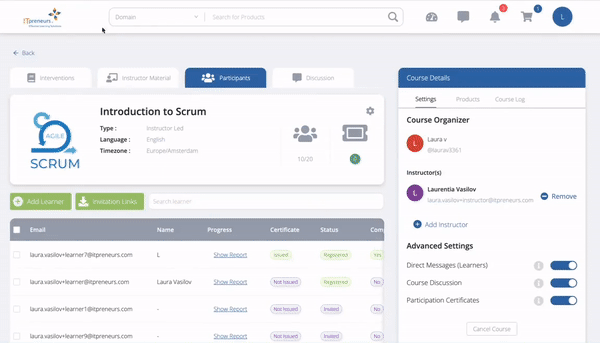“Think and Work Holistically”, one of the Guiding Principles (GP) of ITIL® 4 established to guide organizations in all circumstances, is one of the core messages of ITIL and service management in general. When compared to other GP, however, its meaning is far from self-evident. Sure, most of us know that like any other GP, it applies to all organizations’ initiatives and all stakeholder relationships supporting a sharing and collaborative culture. But why is it important and what can actually be done in order to see it followed? These muddy waters will be made clearer by the end of this article.
Let’s establish for starters that no work is done in isolation. Likewise, no service, practice, process, department, or supplier can stand alone. To produce the required outcome internally as well as to the customer and external stakeholders, the various activities of an organization need to focus on the delivery of value as a whole.
There are four key actions organizations should take to work in an integrated way in the context of service management:
- Establish an understanding of how the different parts of an organization work together;
- Develop end-to-end visibility of how demand is captured and translated into outcomes;
- Identify and analyze the impact of making changes to an element of the system on others, and creating a plan accordingly;
- Use the four dimensions of service management.
This may seem like a daunting task at first. Thankfully, there are three questions you can ask yourself that can greatly contribute to seeing that these principles are applied:
- Have you identified the complexity of the system?
- Are you collaborating to facilitate thinking and working holistically?
- Have you identified the patterns in the given requirements and interactions between system elements?
If the answer to these questions is “yes”, you should be able to describe each in a couple of sentences. If the answer is “no”, list the actions required from your organization’s side to make sure advancements will be made.
Being able to provide a clear answer to these questions demonstrates having the knowledge required to sustain a holistic view of organizations. This is, of course, essential to enable foreseeing the unexpected requirements and set the standards. Are you not sure where to start?
Valuable Considerations to Have in Mind to Think Holistically
- Recognize the complexity of the systems. Different levels of complexity require different levels of decision making. You cannot use the methods and rules of a simple system in a complex system containing complicated components changing more frequently. This leads to ineffective decision making and that’s exactly why identifying the complexity level of the system is essential. There are, for example, very hierarchical organizational structures requiring significantly bigger efforts than most to get approvals. If adding to this, there is an environment where trust is not taken for granted, we’ve got ourselves a complex system indeed.
- Collaborate, collaborate and collaborate. Using the appropriate mechanisms that enable everyone to collaborate in a timely manner is essential to thinking and working holistically. Doing so successfully provides a holistic view that enables organizations to identify and address any issues without any delay.
- Look for patterns in the needs of and interactions between system elements where possible. To do so, start by asking what is essential in each area to succeed and which relationships among elements can influence the outcomes. Doing the right things rather than doing things right is the focus here. Value streams may very well prove to be indispensable tools in this process.
- Acknowledge the potential of automation to facilitate working holistically. Organizations should focus on automation wherever possible provided there’s sufficient availability of resources. Automation supports end-to-end visibility and provides an efficient means of integrated management. It should never be seen, however, as a solution. It is a holistic strategy.
Ultimately, working as a separate entity never helps service, practice, process, department, or supplier produce the required outcome. That’s why the importance of thinking holistically can never be emphasized enough. Ask yourself the right questions, make the right considerations, think holistically and remain focused on creating value. May this article be a small step in that direction.
About the author

As an IT Service Management trainer, consultant and line manager with over 25 years of experience in IT, Marcel has performed strategic and tactical assignments in a wide variety of areas. For the ITIL 4 update, Marcel has been part of the ITIL 4 Lead Architect Team and Review Team at AXELOS. Through his association with AXELOS, Marcel comprehends the background, the architecture, and the underlying reasons of the ITIL 4 update.
Related Courseware
Sorry, we couldn't find any posts. Please try a different search.



